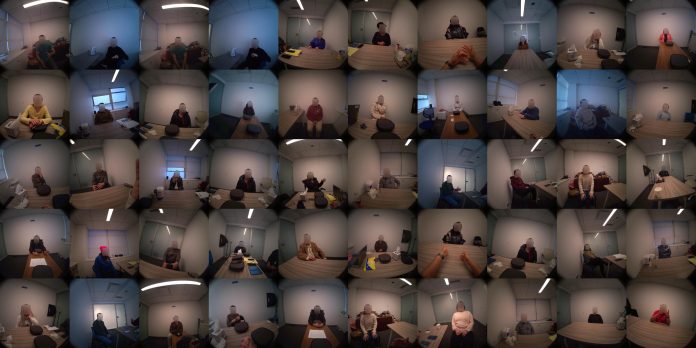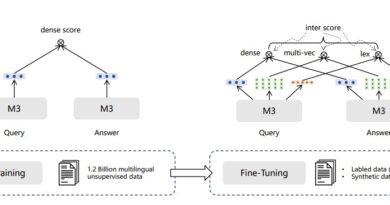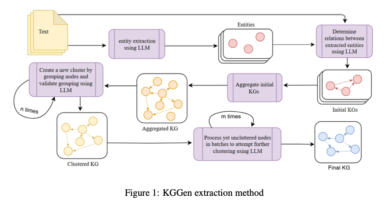Meta AI Releases MMCSG: A Dataset with 25h+ of Two-Sided Conversations Captured Using Project Aria
The field of artificial intelligence (AI) continues to advance rapidly, and one of the key components driving this progress is the availability of high-quality datasets. Meta AI, a leading AI research company, has recently released the MMCSG dataset, which stands for Multi-Modal Conversations in Smart Glasses. This dataset comprises over 25 hours of two-sided conversations that were captured using Meta’s Project Aria smart glasses. In this article, we will explore the significance of this dataset and its potential implications for the development of AI systems.
Understanding MMCSG
The MMCSG dataset is a valuable resource for researchers and developers working in the field of AI, particularly in the areas of natural language processing, speech recognition, and multi-modal signal processing. The dataset consists of conversations recorded using Meta’s Project Aria smart glasses, which are equipped with various sensors including microphones, cameras, and inertial measurement units (IMUs).
🔥Explore 3500+ AI Tools and 2000+ GPTs at AI Toolhouse
The aim of this dataset is to provide researchers with real-world data that can be used to train and evaluate AI systems. By capturing conversations in dynamic environments, the MMCSG dataset introduces challenges such as background noise, motion blur, and speaker identification. These challenges are of great importance as they reflect the real-world conditions that AI systems must navigate to accurately understand and respond to human conversations.
Advancing Transcription Accuracy
One of the primary goals of the MMCSG dataset is to improve the accuracy of conversation transcription. Current methods for transcribing conversations often rely solely on audio input, which may not capture all the relevant information, especially in dynamic environments like those recorded with smart glasses. The MMCSG dataset addresses this limitation by incorporating multi-modal signals, including audio, video, and IMU data, to enhance transcription accuracy.
The proposed approach integrates various technologies, including target speaker identification/localization, speaker activity detection, speech enhancement, speech recognition, and diarization. By leveraging signals from multiple modalities, the system aims to outperform traditional audio-only transcription systems. Furthermore, the motion blur in audio and video data that arises from non-static microphone arrays on smart glasses is mitigated through advanced signal processing and machine learning techniques.
Real-World Applications
The release of the MMCSG dataset has significant implications for various AI applications. For instance, in the field of automatic speech recognition (ASR), the dataset can be used to train and evaluate speech recognition models that are capable of accurately transcribing conversations recorded with smart glasses. This can have far-reaching benefits, such as enabling more effective communication between humans and AI systems in real-world scenarios.
Moreover, the MMCSG dataset can also contribute to the development of AI systems that specialize in activity detection and speaker diarization. These systems can accurately identify and differentiate between speakers in a conversation, allowing for better understanding and context-aware responses. This can be particularly useful in applications such as virtual assistants, customer service chatbots, and transcription services.
Future Directions
The release of the MMCSG dataset by Meta AI is an exciting development that opens up new possibilities for AI research and development. As the field of AI continues to evolve, datasets like MMCSG play a crucial role in advancing the capabilities of AI systems and improving their performance in real-world scenarios.
Moving forward, it is expected that researchers and developers will leverage the MMCSG dataset to train more accurate and robust AI models. This can lead to significant improvements in areas such as speech recognition, speaker diarization, and activity detection. Ultimately, the availability of high-quality datasets like MMCSG acts as a catalyst for innovation and drives the progress of AI technology.
In conclusion, Meta AI’s release of the MMCSG dataset represents a significant milestone in the field of AI. This dataset provides researchers and developers with a valuable resource for training and evaluating AI systems that can accurately transcribe and understand two-sided conversations. By incorporating multi-modal signals and addressing real-world challenges, the MMCSG dataset has the potential to drive advancements in areas such as natural language processing, speech recognition, and activity detection. As AI technology continues to evolve, datasets like MMCSG will play a vital role in shaping the future of AI-powered interactions between humans and machines.
Check out the Paper. All credit for this research goes to the researchers of this project. Also, don’t forget to follow us on LinkedIn. Do join our active AI community on Discord.
If you like our work, you will love our Newsletter 📰




